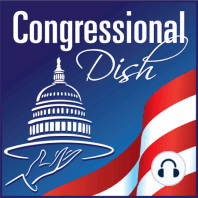70 min listen

CD135: Education is Big Business (Every Student Succeeds Act)
CD135: Education is Big Business (Every Student Succeeds Act)
ratings:
Length:
91 minutes
Released:
Oct 2, 2016
Format:
Podcast episode
Description
The Every Student Succeeds Act was signed into law at the end of 2015 and is a major overhaul of education policy in the United States. In this episode, find out how the new law will likely lead to a massive transfer of taxpayer money into private pockets. Please support Congressional Dish: Click here to contribute with PayPal or Bitcoin Mail Contributions to: Congressional Dish 5753 Hwy 85 North #4576 Crestview, FL 32536 Thank you for supporting truly independent media! S. 1177: Every Student Succeeds Act Bill Highlights Section 4: Transition Ends previous funding programs on September 30,2016 The Statewide Accountability System created by this law will be effective starting in the 2017-2018 school year Title I: Improving basic programs operated by State and local educational agencies Funding Provides an average of $15.5 billion per year for 2017-2020 At least 7% of the funding must be reserved by States and granted to local educational agencies, who will be allowed to hire for-profit organizations for "improvement activities" States are allowed, but not required, to reserve 3% of their funding for direct student services, which includes AP courses, college courses, transportation to another school as needed, and tutoring. 50 local educational agencies will be allowed to create their own per-pupil method of distributing funds State Plans To receive funding, States must submit a peer-reviewed plan to be approved by the Secretary of Education. State plans will be available online for the public Plans will be required to include "challenging academic content standards" but the State won't be required to submit their standards to the Secretary of Education. Academic standards are only required for mathematics, reading or language arts, and science. Alternate academic standards can be developed for students with disabilities. Testing States will be required to test students in math, reading, and science and is allowed to test in any other subject. Math and reading tests are required each year from grades 3 through 8, and once in high school. Science tests will be required once during grades 3 through 5, once during grades 6 through 9, and once during grades 10 through 12. Results will be reported by race, ethnicity, wealth, disability, English proficiency status, gender, and migrant status. State and local educational agencies must include a policy that allows parents to opt their child out of mandated tests. School Choice Students can choose to attend an another public school controlled by the "local education agency" and the local education agency is allowed to pay for student transportation, but there is a funding cap. Secretary of Education's Role The Secretary of Education is prohibited from intervening or adjusting State plans The Federal Government can't force or encourage States to adopt Common Core standards. "No State shall be required to have academic standards approved or certified by the Federal Government in order to receive assistance under this Act." Accountability The State will publish a detailed annual report card on the State's educational agency's website. Local Educational Agency Plans Local educational agencies can only get Federal funding if they have State-approved plans Parents Right to Know Local educational agencies that receive Federal funds will have to provide parents with information about their kids' teachers, including if the teacher has met State qualifications for the grade level and subject and if the teacher is teaching under emergency or provisional status. Parents will also be informed if a student has been taught for 4 or more consecutive weeks by a teacher who does not meet State certification for the grade level or subject. Parents must give written consent in order for their child to participate in any mental health assessment, except for in emergencies. Children can not be forced to take a prescription medication as a condition f
Released:
Oct 2, 2016
Format:
Podcast episode
Titles in the series (100)
CD020: Continuing Resolution, Part 2: Part 2 of the Continuing Resolution which funds the government until September 30th. In this section, we look at the funding for the Defense Department and the Department of Homeland Security. B= Billion M= Million DIVISION C: DEFENSE DEPARTMENT... by Congressional Dish